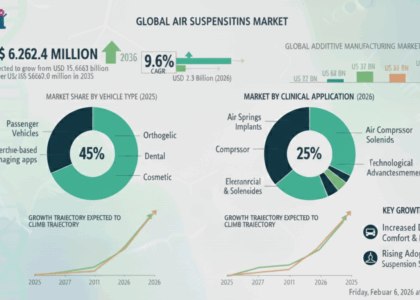
The remote construction market is estimated to be worth USD 1.45 billion in 2025 and is projected to reach USD 6 billion by 2035, reflecting a robust compound annual growth rate (CAGR) of 15.2% during the forecast period. This significant growth is being driven by the increasing adoption of technology in the construction sector, global labor shortages, and the urgent need for cost-effective and efficient project execution in remote or difficult-to-access locations. Remote construction technologies, including automation, prefabrication, and modular construction, are reshaping how infrastructure and buildings are delivered, particularly in sectors such as mining, oil and gas, energy, and defense where work environments are often harsh and isolated.
Technological advancements such as remote-controlled machinery, drones, digital twins, Building Information Modeling (BIM), and Internet of Things (IoT) sensors are enabling project managers to monitor, plan, and execute construction activities from centralized hubs. These innovations reduce the reliance on on-site manpower and minimize risks associated with hazardous working conditions. The growing focus on sustainability and reduced carbon emissions is also boosting the market, as remote construction methods tend to be more material-efficient, minimize waste, and reduce the need for extensive transportation of labor and materials. Furthermore, governments and large corporations are increasingly investing in digital infrastructure that supports remote collaboration and autonomous construction practices, signaling long-term commitment to this transformative model.
Request Your Sample and Stay Ahead with Our Insightful Report!
https://www.futuremarketinsights.com/report-sample#5245502d47422d3132363436
Key Takeaways
The remote construction market is on a high-growth trajectory fueled by rising demand for efficient infrastructure development in inaccessible and labor-scarce regions. The integration of smart technologies with off-site construction processes is helping companies improve operational efficiency, safety, and profitability. As industries continue to shift toward digital construction ecosystems, remote construction offers a scalable and resilient approach to meet tight deadlines, address supply chain disruptions, and comply with increasingly strict safety regulations. North America and Europe are currently leading the adoption, though Asia-Pacific is emerging as a significant growth hub due to rapid urbanization and infrastructural development in remote regions.
Emerging Trends in the Global Market
One of the key trends shaping the remote construction market is the increased use of autonomous construction equipment. These machines, powered by AI and advanced telemetry, allow for precision earthmoving, grading, and excavation without the need for direct human control. Another notable trend is the expansion of modular and prefabricated construction, which enables building components to be manufactured off-site and assembled quickly on-site, minimizing delays and weather-related risks. Cloud-based project management platforms and digital twins are becoming essential tools for remote construction teams to collaborate in real time, simulate scenarios, and monitor progress from anywhere. Additionally, the use of drones and robotics for site surveillance, inspection, and material delivery is gaining momentum, enhancing safety and reducing overall project timelines.
Significant Developments in the Global Sector: Trends and Opportunities in the Market
The remote construction industry is undergoing a profound transformation as stakeholders increasingly seek solutions that optimize project execution while overcoming logistical and environmental constraints. Opportunities abound in sectors such as oil and gas, telecommunications, defense, and renewable energy, where building infrastructure in remote and rugged terrain is mission-critical. Key developments include the launch of 3D printing technology capable of constructing housing units and structural components on-site with minimal labor, and the integration of augmented reality (AR) and virtual reality (VR) for remote site inspections, training, and error detection. Additionally, strategic government investments in digital infrastructure and smart city projects are opening new markets for remote construction providers. The convergence of data analytics, robotics, and cloud computing is also creating a data-driven construction environment that supports predictive maintenance, resource optimization, and automated decision-making.
Recent Developments in the Market
In recent years, major construction firms and technology providers have forged partnerships to co-develop platforms and equipment tailored to remote construction needs. Noteworthy developments include pilot projects in Canada and Australia using remote-controlled cranes and excavators for mining infrastructure, as well as modular housing developments deployed in remote Nordic and Arctic communities. Governments across the globe, particularly in North America, Europe, and Asia, have introduced funding initiatives and regulatory frameworks that support the deployment of prefabricated and remotely managed construction methods. Startups in the construction tech space have also secured significant venture capital funding to develop software tools that enhance real-time collaboration and equipment monitoring from central command centers. Meanwhile, organizations operating in the humanitarian sector are exploring remote construction technologies to build disaster-resilient shelters and medical facilities in conflict zones and disaster-prone areas.
Thorough Market Evaluation: Full Report
https://www.futuremarketinsights.com/reports/remote-construction-market
Competition Outlook
The competitive landscape of the remote construction market is characterized by rapid innovation, strategic alliances, and geographic expansion. Companies are focusing on enhancing their product offerings through AI integration, robotics, and cloud-based monitoring tools. Players are also investing in workforce training and certification programs to support the adoption of remote construction techniques on a broader scale. Market leaders are leveraging mergers, acquisitions, and joint ventures to expand their technological capabilities and global footprint, particularly in high-potential regions such as the Middle East, Southeast Asia, and Sub-Saharan Africa.
Key players
Key players in the remote construction market include Caterpillar Inc., Komatsu Ltd., Trimble Inc., ABB Ltd., Topcon Corporation, Autodesk Inc., Hilti Group, Fluor Corporation, Bechtel Corporation, and Kiewit Corporation.
Key segmentations
Key segmentations of the remote construction market include technology, application, component, and end-use industry. By technology, the market encompasses teleoperated machinery, AI-powered robotics, drones, and digital construction platforms. Applications range from infrastructure development and mining to oil and gas, defense, telecommunications, and disaster relief. Components include hardware such as sensors and control systems, software platforms for project and asset management, and services such as remote supervision and maintenance. End-use sectors driving demand include energy and utilities, military and defense, construction and infrastructure, and humanitarian aid and emergency response.
About Future Market Insights (FMI)
Future Market Insights, Inc. (ESOMAR certified, recipient of the Stevie Award, and a member of the Greater New York Chamber of Commerce) offers profound insights into the driving factors that are boosting demand in the market. FMI stands as the leading global provider of market intelligence, advisory services, consulting, and events for the Packaging, Food and Beverage, Consumer Technology, Healthcare, Industrial, and Chemicals markets. With a vast team of 400 analysts worldwide, FMI provides global, regional, and local expertise on diverse domains and industry trends across more than 110 countries.
Contact Us:
Future Market Insights Inc.
Christiana Corporate, 200 Continental Drive,
Suite 401, Newark, Delaware – 19713, USA
T: +1-845-579-5705
For Sales Enquiries: sales@futuremarketinsights.com
Website: https://www.futuremarketinsights.com
LinkedIn| Twitter| Blogs | YouTube




